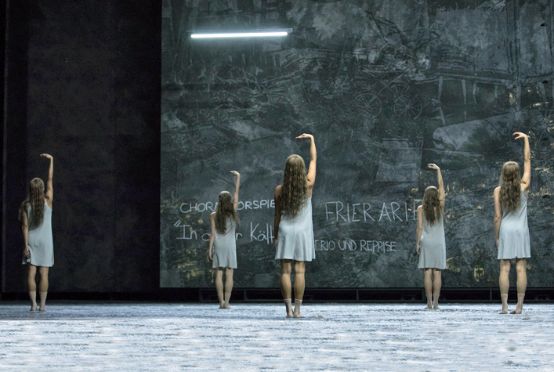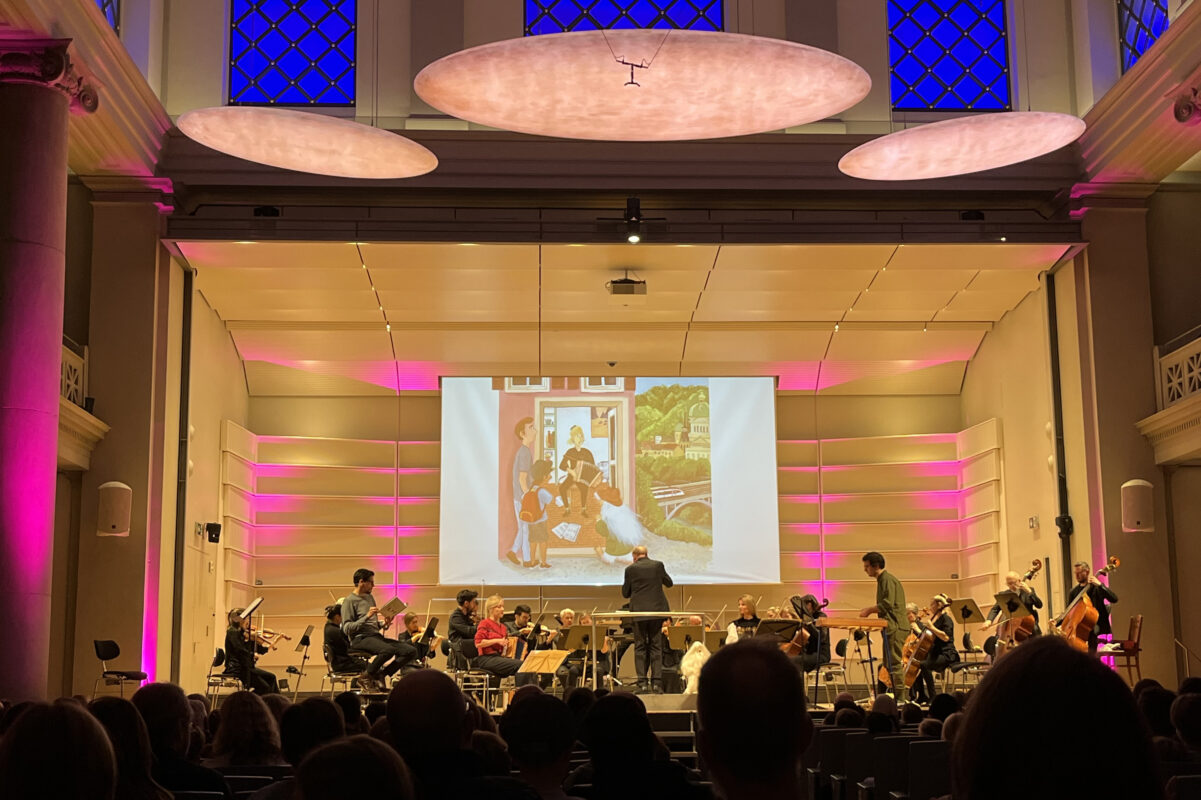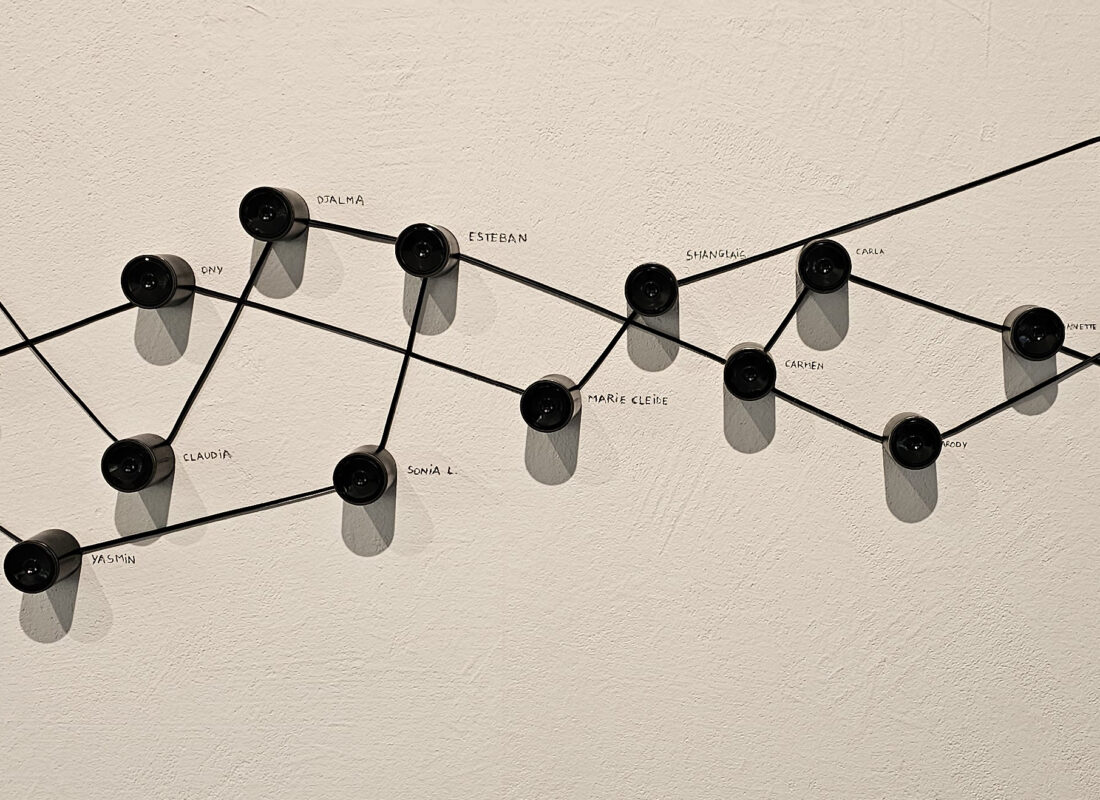Helmut Lachenmann in Zurich
"Das Mädchen mit den Schwefelhölzern" was a great success as a ballet at the opera house. On September 8, a symposium at the Zurich University of the Arts provided an opportunity to take a closer look at the composer's personality.

Something extraordinary has happened in Zurich. With Helmut Lachenmann's music theater The girl with the sulfur sticks the opera house brought a work of the most advanced contemporary music to the stage as a ballet - and all nine performances were sold out! A unique success, which seems all the more astonishing when you consider the composer's personality and, in particular, his life's work. Lachenmann, who celebrates his 84th birthday on November 27, was perceived for decades as a refusenik, as someone who rejected all bourgeois convention and was accordingly treated with hostility. And now his music is celebrating such a triumph in the temple of bourgeois high culture of all places.
The carefully choreographed supporting program certainly contributed to this success. There were portrait concerts, a discussion concert and a symposium at the Zurich University of the Arts (ZHdK), with and about Helmut Lachenmann. The symposium served less as an introduction to the opera than as an in-depth exploration of the "Lachenmann event", as Dieter Mersch, philosopher and lecturer at the ZHdK, titled his lecture. Starting from the Girl with the sulfur sticks the participants explored fundamental questions about the composer's life's work under the direction of musicologist Jörn Peter Hiekel. The audience was delighted with Hiekel's ability to accurately summarize the various lectures and place them in a wider context.
There was a wide variety of topics covered in the lectures. For example, the musicologist Ulrich Mosch, who teaches in Geneva, addressed the question of how Lachenmann's music theater approaches differ from those of his teacher Luigi Nono. Central to this was the problem of how (politically) committed music-making was possible, because both teacher and pupil agreed that music had to be committed. But while the communist Nono saw his (especially his earlier) music theater works as a contribution to the class struggle and wanted to move people directly, Lachenmann was skeptical of such actions, once calling it "hypocrisy or - more sympathetically - quixotry". According to Mosch, he would rather try to use art to teach people "to use their thinking senses".
And this is precisely the aim of Lachenmann's music of scraping, blowing and scratching noises. The physical production of the sounds is no longer hidden, but turned outwards and is thus intended to expand our patterns of perception. This would move us, also politically. Or, as Mersch put it, in Lachenmann's work the political occurs "behind the music", so to speak.
Astonishing personality
Despite the diversity of the contributions, such as Christian Utz's comparison of Schubert's Winter journey with the Girls or Stephanie Schroedter's tour d'horizon through different approaches to choreographing Lachenmann's music, one thing emerged. The image of this composer is changing. Formerly viewed primarily from the perspective of negation, as a denier, today he is increasingly focusing on the aspect of perception. Lachenmann deals with the phenomenon of grasping music itself and, in doing so, achieves a degree of sensuality that is rarely found in New Music.
Perhaps the Zurich success of the Girl with the sulfur sticksIn general, the popularity that Lachenmann's music has recently enjoyed can be explained by this very sensuality. At the symposium, however, something else stood out. It was the person of the composer himself that was fascinating. For example, how he took the various contributions to his compositional personality seriously, apparently understanding them in such a way that he could learn something about himself from them. How he made an effort to respond to every contribution.
But above all when his passion for music burst out of him and led him to make statements of incredible plasticity. For example, when he justified his interest in Schubert by saying that he was a "thumb-sucker" who clung to certain elements, such as a particular chord, like a desperate, lonely child in the musical landscape left behind by Beethoven. Or when he described the founding fathers of serial music as gold diggers who, with the exception of the eternal desperado Nono, had mutated into jewelers.
However, Lachenmann's personality came across most clearly in the final discussion moderated by Claus Spahn, the chief dramaturge of the Zurich Opera House. While choreographer Christian Spuck offered interesting insights into the creation process of the Zurich production and composer Isabel Mundry commented on it with her usual wit, Lachenmann seemed like a child on the sidelines. A child who was genuinely happy about what he thought was a successful production and still marveled at how the dancers managed to move so synchronously.








